One of the best things about working at Tor.com is that we get to spend so much time immersed in the science fictional and fantasy worlds that we love—from the books, comics, and movies that we grew up on through the newest releases of the year, we tend to eat, sleep, and breathe SFF both in and out of the office. As voracious readers, though, we also like to stretch our wings and venture into other literary genres, and so we thought we’d share some recommendations from our recent forays into history and historical fiction, biography, anthropology, criticism, and more. We hope that you’ll share some of your own suggestions in the comments, and let us know what other genres help to round out your TBR pile!
Bridget McGovern:
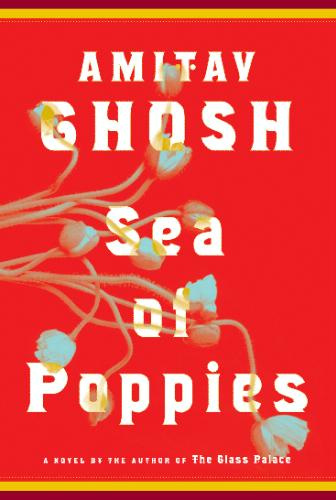 I tend to read a lot of history, historical fiction, biography, and works that occasionally blur the line between those genres. I’m a big fan of Hilary Mantel (particularly her Cromwell trilogy-in-progress) and Kate Summerscale (The Suspicions of Mr. Whicher and The Queen of Whale Cay). I recently devoured my way through The Ibis trilogy by Amitav Ghosh, set mainly in India and China in the years leading up to the First Opium War; in many ways, it’s a gorgeous exercise in worldbuilding that any fan of fantasy will appreciate. And the role that language plays in these books is fascinating, as the large cast of characters endeavor to communicate across a web of different languages, dialects, and slang, leading to a lot of slippery business with puns and idiomatic misunderstandings; the results are sometimes hilarious (especially early on), but can also be tragic on both an individual level and a larger cultural/historical scale—all told, it’s just a brilliant, masterful work of storytelling.
I tend to read a lot of history, historical fiction, biography, and works that occasionally blur the line between those genres. I’m a big fan of Hilary Mantel (particularly her Cromwell trilogy-in-progress) and Kate Summerscale (The Suspicions of Mr. Whicher and The Queen of Whale Cay). I recently devoured my way through The Ibis trilogy by Amitav Ghosh, set mainly in India and China in the years leading up to the First Opium War; in many ways, it’s a gorgeous exercise in worldbuilding that any fan of fantasy will appreciate. And the role that language plays in these books is fascinating, as the large cast of characters endeavor to communicate across a web of different languages, dialects, and slang, leading to a lot of slippery business with puns and idiomatic misunderstandings; the results are sometimes hilarious (especially early on), but can also be tragic on both an individual level and a larger cultural/historical scale—all told, it’s just a brilliant, masterful work of storytelling.
I also have to recommend Alan Sepinwall’s The Revolution Was Televised to anyone who enjoys truly smart, entertaining pop cultural criticism. It covers twelve of the most influential TV dramas of the last couple of decades (including Buffy, Lost, and Battlestar Galactica), with plenty of behind-the-scenes input from the writers, showrunners, and producers responsible for creating—and occasionally blamed for destroying—some of the best storytelling in any medium in recent memory.
Chris Lough:
The End of Men by Hanna Rosin
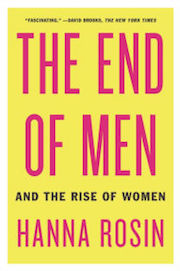 Sorry/not sorry, guys. Although, it should be noted that the title of Rosin’s non-fiction book is extremely hyperbolic, meant to stop you in your tracks, and the cover synopsis is so overblown that this sentence is the only one that actually describes the content of the book:
Sorry/not sorry, guys. Although, it should be noted that the title of Rosin’s non-fiction book is extremely hyperbolic, meant to stop you in your tracks, and the cover synopsis is so overblown that this sentence is the only one that actually describes the content of the book:
With wide-ranging curiosity and insight unhampered by assumptions or ideology, Rosin shows how the radically different ways men and women today earn, learn, spend, couple up—even kill—has turned the big picture upside down.
The End of Men is essentially a large collection of data that studies social systems by looking at results for males and females separately. Some of the conclusions are what you’d expect–women are still offered less money than men–but some of the conclusions are startling. The End of Men doesn’t offer a road map to, you know, ending men. It doesn’t rejoice in the victory of one gender or another, it simply points out that dynamics in education, the work force, and economics are changing, and that men are not keeping up. By grouping all of this data together, you start to understand the terror propelling people who call themselves “Men’s Right Activists.” What used to come easy isn’t so easy anymore, and the “competition” is heating up.
I’d also like to slow clap the cover designer for this book, for taking the hyperbolic title and coating it in pastel colors. It is a taunt to anyone outraged by the title but too dumb to flip through the actual book. Here come them wimmins to take your rights, the cover design says, and if you believe this then you are literally judging this book, and probably everything, by its cover. It’s brilliant in its simplicity. (It’s also possible that I’m giving the cover way too much credit, and that it’s pastel because the author is female.)
I mostly read non-fiction when not reading genre fiction, and The End of Men struck me in particular, because a lot of what it demonstrates through data is supported by my anecdotal experiences, especially in school. Gender balances are shifting in a wide variety of areas, and Rosin’s book presents a lot of convincing causal data as to why.
Stefan Raets:
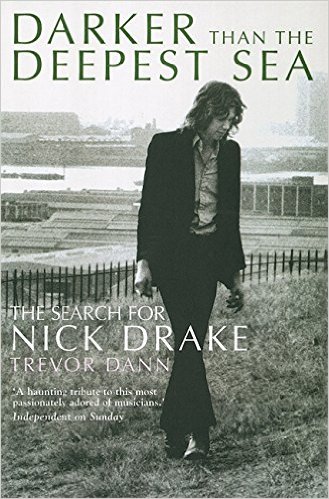 In the last few years, most of my genre reading has been for review. Whenever I read something just for fun, it tends to be either a reread of an old favorite, or something completely outside of the genre. Lately, I’ve been going for nonfiction about my two other nerd obsessions: music and history. Here are two recent favorites:
In the last few years, most of my genre reading has been for review. Whenever I read something just for fun, it tends to be either a reread of an old favorite, or something completely outside of the genre. Lately, I’ve been going for nonfiction about my two other nerd obsessions: music and history. Here are two recent favorites:
Darker Than the Deepest Sea by Trevor Dann, being a biography of the musician Nick Drake. There’s some wonderful detail about Drake’s early life, and the book really puts his shocking decline at the end of his life in perspective, but if I’m to be honest, my favorite bit is the final section, where Dann analyzes all of Drake’s songs and includes the unusual guitar tunings Drake was so fond of.
The Forsaken by Tim Tzouliadis, which is an account of the lives of the many Americans who emigrated to Russia in the first half of the 20th century. During the Great Depression, the U.S. economy was in ruins, while Russia was stabilizing and prospering after the upheaval of the October Revolution. A thriving American immigrant community in Russia, complete with baseball leagues and English language newspapers, was later decimated by the Stalinist regime and more or less forgotten by the home country.
Leah Schnelbach:
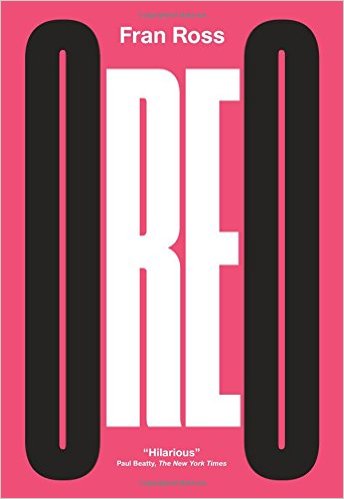 I’ve made it a bit of a tradition since coming to Tor.com that I spend the time between Christmas and New Year’s reading something that is resolutely non-SFF. I also try to read (on paper) and ignore TV, internet, and movies for at least a few days. Last year the book was the giant Jim Henson biography, which was fantastic but… well, we all know how that story ends. This time I started my year in a perfect way by reading Fran Ross’ Oreo, a criminally overlooked novel from 1974.
I’ve made it a bit of a tradition since coming to Tor.com that I spend the time between Christmas and New Year’s reading something that is resolutely non-SFF. I also try to read (on paper) and ignore TV, internet, and movies for at least a few days. Last year the book was the giant Jim Henson biography, which was fantastic but… well, we all know how that story ends. This time I started my year in a perfect way by reading Fran Ross’ Oreo, a criminally overlooked novel from 1974.
Here is what Oreo is: a quest story; a re-telling of the Theseus myth; a tour through mid-70’s Black culture; a reckoning with both Black and Jewish heritage; feminist; queer-friendly; a love letter to the power of Yiddish; the funniest book you will ever read.
Here is what Oreo is not: sad; depressing; traumatic; reeling; hand-wringing; overwrought; boring.
If you’d like a plot description, biracial Christine Clark (accidentally nicknamed ‘Oreo’ by her grandmother – it’s a long story) decides to leave the safety of Philadelphia and journey into the labyrinth of New York in search of her Jewish father, and a picaresque adventure ensures. The book fell through the cracks when it was published. The book was rediscovered by the scholar and poet Haryette Mullen, and finally reissued by New Directions last summer. Author Danzy Senna sums up the wonderfulness of the book in her introduction to that edition, saying:
As in the best satire, nobody in “Oreo” is safe; nobody is spared. The humor is low at times, scatological and plain silly, and the humor is high, sophisticated wordplay and clichés flipped on their heads. Ross is a hard sell for February, Black History Month, and a hard sell for March, Women’s History Month. Hers is a postmodern text; it is a queer text; it is a work of black satire; it is a work of high feminist comedy; it is a post-soul text. Her novel is multifaceted and multilingual, making it an awkward presence on the landscape of American fiction, where “ethnic” literature can be put in kiosks like dishes at a food fair, and consumed just as easily.
Personally, I think the book would have been just as tough to publish now. It’s too inventive and messy and weird, which is what makes it a brilliant novel.
Mordicai Knode:
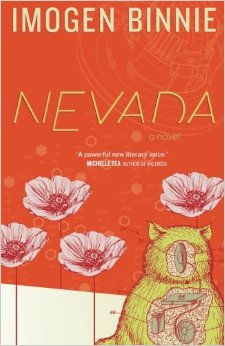 I’m an armchair anthropologist, and I like to keep my skills sharp by reading scientific non-fiction. Neanderthals and other non-human members of the genus Homo are my particular poison, and the last book I read on the subject was The Invaders by Pat Shipman. It looks at early human migration out of Africa through the lens of an “invasive species,” quite convincingly, and speculates on the role that the domestication of the dog by humans might have had in Neanderthal extinction.
I’m an armchair anthropologist, and I like to keep my skills sharp by reading scientific non-fiction. Neanderthals and other non-human members of the genus Homo are my particular poison, and the last book I read on the subject was The Invaders by Pat Shipman. It looks at early human migration out of Africa through the lens of an “invasive species,” quite convincingly, and speculates on the role that the domestication of the dog by humans might have had in Neanderthal extinction.
My wife and I host a book club with a fairly diverse selection of books: everyone tries to represent their interests or favorite genre. I’d already read the last selection, but was happy to re-read it: Nevada by Imogen Binnie. I’ve known Imogen for a while, as have a few other people in the club, which the person who picked it didn’t know, so Imogen called in after our discussion to chat with us about the novel as a nice treat. It’s a story about New York, small-town America, and being trans, and the voice of the protagonist of the first half, Maria, is clear and affecting.
Natalie Zutter:
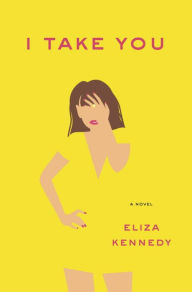 Neck-and-neck with my love of great speculative and SFF stories is fiction and nonfiction that examine the modern state of love. I will defend romance and chick lit to the end, but they have to have something unique to earn that support. One of my favorite books of 2015 was Eliza Kennedy’s I Take You, a Bridget Jones-esque romp that completely subverts readers’ expectations: To wit, it opens with a woman staring down the barrel at her wedding day and sleeping with everyone she can before she has to walk down the aisle. It’s a dark, sexy, unapologetic look at how commitment phobia grips today’s lovebirds, how with the option of so much choice it’s scary to tie yourself to one partner forever.
Neck-and-neck with my love of great speculative and SFF stories is fiction and nonfiction that examine the modern state of love. I will defend romance and chick lit to the end, but they have to have something unique to earn that support. One of my favorite books of 2015 was Eliza Kennedy’s I Take You, a Bridget Jones-esque romp that completely subverts readers’ expectations: To wit, it opens with a woman staring down the barrel at her wedding day and sleeping with everyone she can before she has to walk down the aisle. It’s a dark, sexy, unapologetic look at how commitment phobia grips today’s lovebirds, how with the option of so much choice it’s scary to tie yourself to one partner forever.
Someone else who knows plenty about the crisis of choice in contemporary dating is comic Aziz Ansari. For Modern Romance, he teamed up with sociologist Eric Klinenberg and polled real people at his shows, who willingly handed over their smartphones so Aziz could study unbiased evidence of the awkwardness of OkCupid messages, miscommunications over text, and the awfulness of ghosting. As someone who had more than my share of cringeworthy OkCupid dates before finding my guy through the site, I appreciate novels and irreverent yet in-depth studies that map out the shifting landscape of finding love in the age of technology.
Molly Templeton:
Do What You Love: And Other Lies About Success and Happiness by Miya Tokumitsu
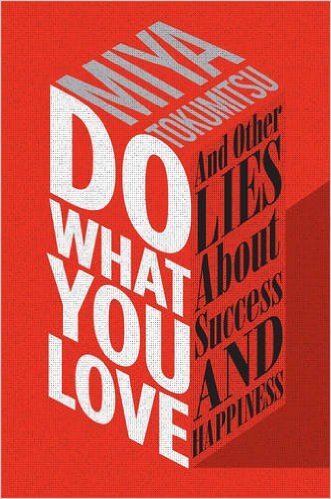 When you recommend a book with a title like this, people can hardly help but wonder about you and your job; for the record, I am very fond of mine. But I also love this book, which explores the way the “do what you love” mythology plays out in our culture. What used to be a corny mantra about finding happiness has transformed into a way for capitalism to ask—or require—more from workers, whether more time, more investment, more smiles, or more gratitude. Tokumitsu looks at idealized workaholics; emotional labor; the “hope economy” (internships and the idea that you have to pay your dues with little or no income, in hopes of eventual gainful, happiness-making employment); and the myth that if you just love your work enough, you’ll succeed at it. She writes, “As long as our well-being depends on income, and income, for most, depends on work, love will always be secondary as a motivation for doing it. Encouraging workers to pretend otherwise is disingenuous and exploitative.” Sharp, succinct, and ultimately hopeful, it’s the kind of book that has the potential to rewire your brain. In a good way.
When you recommend a book with a title like this, people can hardly help but wonder about you and your job; for the record, I am very fond of mine. But I also love this book, which explores the way the “do what you love” mythology plays out in our culture. What used to be a corny mantra about finding happiness has transformed into a way for capitalism to ask—or require—more from workers, whether more time, more investment, more smiles, or more gratitude. Tokumitsu looks at idealized workaholics; emotional labor; the “hope economy” (internships and the idea that you have to pay your dues with little or no income, in hopes of eventual gainful, happiness-making employment); and the myth that if you just love your work enough, you’ll succeed at it. She writes, “As long as our well-being depends on income, and income, for most, depends on work, love will always be secondary as a motivation for doing it. Encouraging workers to pretend otherwise is disingenuous and exploitative.” Sharp, succinct, and ultimately hopeful, it’s the kind of book that has the potential to rewire your brain. In a good way.
All the Rage Courtney Summers
I read a ton of great YA in the last year, some of it (like the overlooked The Unquiet; please go find this book if you like creepy stories about assassin teens, clones, and alternate earths) too SFF-y to fit here. But, if forced to pick one shining star among a shining stack of books, I’d hand you All the Rage, a story so full of hope and anger that it gives me goosebumps to think about it. (Also, I really wanted to punch someone in the face when I finished it.) It’s about closed-mindedness and privilege, victim-shaming and poisonous gossip, love and fighting your way through. Summers captures the incredible loneliness of being shunned in a small town, and the many ways adults can fail the kids they’re supposed to help and protect, and she does it through Romy, as flawed, angry, hurting, and wonderful a main character as I could ever hope to meet. It’s not an easy read, but that’s part of what makes it so stunning.










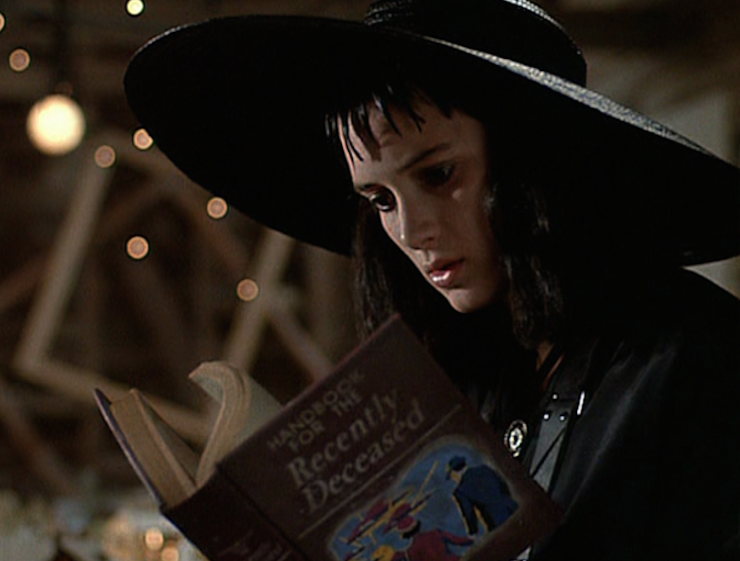
Interesting post!
Does Do What You Love refute the “higher education will help you get an entry level job (or any kind of job)” myth?
When I’m not reading fantasy, I’m reading YA, critical theory, classic lit, bios, and history (mostly British, art, and baseball– I’m on my umpteenth read of Mike Vaccaro’s The First Fall Classic right now).
I’m usually reading history or science books which is basically the non-fiction versions of Sci-fi & Fantasy. Australian history is some of the greatest stuff ever.
When not reading SFF, I often read non-fiction about science and history, though even here it’s hard to get away from geekiness: my first book-length introduction to the history of feudal Japan was A Brief History of the Samurai by Jonathan Clements, who has also written Doctor Who audio dramas.
I’m not sure how common this is but I also have bouts of “classic anxiety”, which take about a week of reading new-to-me novels, stories and poems (from outside the genre) by 19th and 20th century authors to clear up. Last year I found Eric Ambler’s fine suspense novel The Mask of Dimitrios during one of these.
When not reading scifi or fantasy, I read textbooks. Lots of textbooks. (I’m currently in grad school). When I need a break from those though, I read military and spy books (Tom Clancy), or cheesy adventure books (Clive Cussler).
I am an addict of SF- I’ve been reading The Force Awakens, The Expanse, and various other military sci-fi and urban fantasy stuff, but when I am not reading SFF, my choices tend to be non-fiction, but in wide ranging subjects.
I have recently read (and found very useful) The Antidote: Happiness for People Who Can’t Stand Positive Thinking by Oliver Burkeman, a wonderful look at the modern state of the self-help culture:
From the publisher’s description: “They argue that in our personal lives, and society at large, it’s precisely our constant effort to be happy that is making us miserable. That “positive thinking” isn’t the solution, but part of the problem. And that there is an alternative, “negative path” to happiness and success that involves embracing failure, pessimism, insecurity and uncertainty―those things we spend our lives trying to avoid.”
I am also reading Debt: the First 5000 Years by David Graeber, a fascinating look at the anthropological origins of our economies, and the assertion that society didn’t go from barter to money (supposedly because you couldn’t carry a pig around to trade), but that the first financial system wasn’t barter at all, it was credit, and that society revolves around credit and debt, and always has.
I read a lot of history and historical novels and was just thinking the other day about how the historical eras that are most interesting to me match with and inform my genre reading. Specifically,
High Middle Ages == Fantasy
Age of Sail == Space Opera
Old West == Post-Apocalyptic
Non-SFF reading right now is Reagan: The Life by H.W. Brands.
One thing I like about it is that it is judicious about what it includes. Most people care chiefly about Reagan’s time as President, so that gets the bulk of the coverage. The most interesting and character-defining tidbits from his first 70 years are included in about 200 pages, while the presidency gets much more time.
The speeches are not included in their entirety. Instead, there is alternating quotes and author summary/paraphrase. People other than Reagan are introduced to the reader with just enough context to make their part make sense but without becoming mini-biographies themselves. One great example is how he treats Margaret Thatcher. Her role as Prime Minister of the UK is mentioned along with her general political views and party affiliation. Brands does not give a dissertation on UK politics or Thatcher’s life story in the process, as some biographers would be tempted to do.
Reagan’s life and times are fascinating to me, as I came of age during the first Bush and Clinton presidencies. I did not get why such a big deal was made in the media when he died, but I am starting to get it now.
Thanks for this!
My book club keeps me on my toes with genres outside my SF/F home; we are currently reading (and I’m very much enjoying) H is For Hawk by Helen Macdonald. We also recently read (and everyone loved) The Devil In The White City by Erik Larson.
For some reason, during the winter months, I tend to gravitate toward non SF ( rarely read fantasy) and pick up on “literary” fiction or non-fiction. In the past I have read Hemingway (“The Sun Also Rises” is wonderful) and poetry. Leaves of Grass, some Chaucer. Read a great account of the Bay of Pigs debacle several years back. “A Brilliant Disaster” Hoping to read some James Jones (“From Here to Eternity”) and more history.
I have a large collection of travel books and tales from the age of exploration, particularly Arctic and Antarctic with a side in mountaineering. Currently rereading The Worst Journey in the World to remind myself how bad a winter can be.
I also read a lot of historicals, thrillers and whatever science related non-fic catches my eye.
I read historical fiction about the lives of ordinary-but-interesting fictional people, enjoying vivid immersion in other times and places. Fiction in modern settings rarely interests me unless it’s by Barbara Kingsolver (though some of her novels are also historical and some of the rest were modern when written but sort of historical now).
For nonfiction, I like lyrical nature prose, travel accounts, investingations of the complicated relationships between humans and the living world, and combinations of the above. Favorite authors for this include Barbara Kingsolver (I love her essays), Diane Ackerman, Michael Pollan, and Bill Bryson.
Occasional historical fiction or historical adventure fiction — I recently reread Gary Jennings’ Aztec for the first time in about 20 years, and I’m a big fan of Harold Lamb’s stories from Adventure Magazine back in the 1920s, etc.
And last summer, inspired by Elizabeth Hand’s wonderful Wylding Hall, I read Electric Eden, a nonfiction history of the British folk music revival of the 1960s & 1970s.
One of these days I also plan to add some Elmore Leonard and John le Carre to the mix.
If it’s not Science Fiction or Fantasy it doesn’t get read.
Generally, if I’m not reading SF/F then it’s non-fiction instead. Currently I’m slowly making my way through the Haynes manual for Soyuz, and the Titan II (ICBM) Handbook. So generally in a science fact sort of direction.
I’m trying to think what the last non-SF/F fiction book that I read was but it must have been quite a while ago, an Iain Banks book perhaps?
When not reading Sci-Fi or Fantasy I’ve been reading Lee Child’s Reacher books for the last couple of years. I also read a lot of horror, or mysteries set in the UK.
When I’m not reading fantasy I read a lot of mysteries and early nineteenth century novels. My latest discovery has been Mary Barton by Elizabeth Gaskell, but I am a huge Dickens, Sir Arthur Connan Doyle, and Robert Lewis Stevenson fan.
For non-SF/fantasy reading I mostly turn to historical fiction, mostly military, and particularly love Bernard Cornwell. His “Sharpe’s Rifles” series is a favorite (Napoleonic Wars) and I’ve re-read them several times, as well as the Saxon Tales series and The Archer’s Tales. Also like other series focused on the Napoleonic War period like C.S. Forester’s Hornblower novels and Patrick O’Brien’s excellent series. Do also delve into the occasional thriller, like the Jack Reacher books and the like, and my guilty pleasure is Louis L’Amour westerns–a quick palate cleanser when I get tired of the usual.
I read a lot of crime, and am chuffed to bits today as there is a Margery Allingham (Golden Age crime queen) book I’ve not come across before ‘The Black Plume’ available on Kindle for 99p. Though I suppose I would have to exclude her last book here, ‘The Mind Readers’, as it is science fiction.
I read cookery books too, what I’d call serious ones by people like Jane Grigson and Claudia Roden, that look at the history of dishes and to an extent the culture that produced them. Claudia Roden’s ‘The Book of Jewish Food’ is fascinating on how the restrictions on jobs Jews could hold imposed by different countries, along of course with religious dietary restrictions, impacted on the food Jews cooked historically. Also other books about food like ‘Meat, a Benign Extravagance’ by Simon Fairlie, looking at the environmental, ethical and health issues surrounding eating meat, which I’ve just started reading
Mrs Bridge, by Evan S Connell; it has something a bit uncanny about it that fits in well with the American gothic sensibility.
3. SchuylerH
That basically was the impetus behind the Appendix N re-read I did; I wanted to fill in more gaps!
8. fallinharmony
Good to know I’m not the only one who counts on my book club to bring variety to my reading list.
10. Mayhem
Antarctic non-fiction is another subgenre I get a lot of joy from.
@Jazzlet, I read Allingham, tho’ I’ve not read The Black Plume. My go-to cookbook for reading and recipes is the ’61 New York Times Cookbook–some of the notes are not just informative but interesting and some even have a wry humor :).
@20: “Classic anxiety” can be productive and fun. I finally read “Locksley Hall” this week: SFF is inescapable! The worst kind of classic-related anxiety is the one you get when you see books much younger than you are referred to as classics without the qualifier “modern”.
Lately, the non-SFF books I’ve read have included Summer Skin by Kirsty Eagar, a feminist YA romance where the protagonist is escaping an abusive ex only to be attracted to an emotionally-unavailable hunk.
Summer Harvest, a romance: Beth has survived her parents’ death by car accident, her sister’s death by breast cancer only to be diagnosed with cancer herself. She survived and now her grandparents send her on a holiday to Western Australia where she falls for a man-hunk whose mother died of cancer when he was little.
City of the Lost by Kelley Armstrong: not SFF although written by Kelley. Also, it’s not a city. Casey helps Diana escape her abusive ex to find herself in a small town of 200 residents including a serial murderer. It’s a murder mystery with romance.
I have plans to read academic discussions about mythology but the review copies just keep piling up…
Like Bob Howard (@15), I am a fan of naval adventures, with particular favorites being the works of C.S. Forester, Patrick O’Brian, and more recently, Julian Stockwin.
I don’t read a lot of romance books, but I was always a fan of Rosamunde Pilcher. I first encountered her short stories in the ‘women’s’ magazines that my mother read, and was always amazed at how quickly she could make me care for a character.
I don’t read a lot of non-fiction at the moment, but what I do read is either religious history, commentary or analysis, or research for something I am working on.
“What are you reading when you’re not reading Science Fiction/Fantasy?”
…
I’m sorry, I don’t think I understand the question.
My guilty pleasure is police procedurals and forensic anthropology, especially Kathy Reichs, Patricia Cornwell, and J. D. Robb (okay, those are mashups between procedurals, near-future sci-fi, and romances). During the height of CSI’s popularity, I was reading every forensic science book I could get my hands on; Bill Bass’ stories about The Body Farm in Tennessee I found fascinating (if a bit gruesome). I also have a bit of a soft spot for sweeping disaster epics, like Isaac’s Storm, the story of the 1900 Galveston hurricane, and Pompeii, by Robert Harris.
Well the last non genre book I read was a Yamaha outboard repair manual. Does that count? Before that was an incredibly detailed primer on extreme long range rifle shooting. Before that was The Count of Monte Christo (yes I had never read it before) and before that I was on some weird romance bender.
Yeah, I’m a bit eclectic.
A few years ago my wife bought me “501 Must-Read Books” by Emily Beare. It divides these must-read books by category, and yes there is a sci-fi category – but no fantasy! Lord of the Rings is called children’s literature, along with The Last Unicorn! So is The Colour of Magic! The Neverending Story at least has the honour of listing as modern fiction. Needless to say, I scoffed at this useless list.
A few years later I’m hopelessly addicted and have discovered all kinds of favourite new-to-me authors through this list, from outside the genre. My reading has done a complete flop to where I now read at least 80% outside genre when it used to be the opposite. I guess you could say it converted me.
For me, it’s usually contemporary non-fiction of the Tracy Kidder, James Gleick, John MacPhee, Bill Bryson, Laura Hillenbrandt variety or classics (I re-read the Austen books and did initial reads of Wuthering Heights and Jane Eyre a few years ago). Less frequently but some time, I’ll do a procedural or thriller or comedy (Chelsea Handler bio, anything by David Sedaris).
I like murder mysteries, historical fiction, and combinations of the two. I just got started on Jane and the Waterloo Map, by Stephanie Barron; I think that series captures the spirit of Jane Austen a lot better than 98% of the sequels and updates and reimaginings out there. I’m also really looking forward to When Falcons Fall, by C.S. Harris.
I also read popular history for fun, and my e-book for the gym in the morning this week is Empty Mansions: The Mysterious Life of Huguette Clark and the Spending of a Great American Fortune, by Bill Dedman and Paul Newell.
hey guys, I often read science Fiction, but when im not on it, i go back to historical novels, i like them a lot and the last one was “The Legion of Inmortals” of Massimiliano Colombo, an Italian author writing about Romanic legions, very cool if you think about it, being Massimiliano an expert on history, with studies on roman history, it the story of the Aquilifer of the 10th Legion on aproximatly the year 55 b.C. its a good read if anyone is interested. now im up to Leon Tolstoi’s Anna Kareninna. Clasic an a very good read if yopu ask me. read you soon!!!
I read mysteries and occasionally some fiction when I’m not reading SF/F. I do read a lot of non-fiction also, mostly how-to books–I love reading cookbooks: they’re so gorgeous!– but also books on various needle arts.
I read mostly SFF, but when I’m not, I like to read non fiction (sometimes about science/microbiology, sometimes biographies, sometimes theology/philosophy – encyclicals, things like that). I also enjoy reading other fiction; recently I went through a big ‘Russian Literature’ kick and read various Tolstoy, Dostoyevsky and Nabokov books.
The last two non-SFF books I read were I am Malala and An Unnecessary Woman (the latter because it was part of a book club my husband was going to). I wasn’t intending to read books in which middle eastern women were the focus in such quick succession, but it’s kind of funny it turned out that way. An Unnecessary Woman was rather interesting as the main character was an elderly, solitary, introverted and somewhat ascerbic woman and I feel like that’s not a voice one hears very often.
Now that is a hard question and it took me a while. I literally had to go through my library and search for something non-SFF. And I discovered, that even those non-SFF books have to have a certain something, a fantastical flavour if you like, or they’re just not worth reading. Sometimes the link is an author (just last week I’ve read Death is a lonely bussiness by Ray Bradbury), but mostly I like books not-exactly-found-in-“Fantasy”-shelf-in-bookstore-but-c’mon-that’s-totally-a-Fantasy, like anything by: Italo Calvino, Michal Ajvaz, Gustav Meyrink, Josef Vachal or Julius Zeyer (when I find a good author, I tend to read all his books, so I’m listing favourite authors, not books). And now I realized most of these authors are Czech and therefore probably somewhat obscure to most of you… sorry… And then I read a lot of poetry. A lot.
@20 mordicai, I loved that Appendix N re-read. For me, it was a nice trip down memory lane, and I hope others found enjoyment among the old classics–whether it be through remembering them, or discovering them for the first time.
@28.
I love that book. 1001 BooksYou Must Read Before You Die is anothber great one, but bit more dry.
I read only sff when I was younger, but as I’ve aged less and less.. My favorites still hold up and I occasionally find new ones too, (most recently Lev Grossman) but being in sff genre isn’t enough for me to get interested in a book anymore, almost the opposite!
Atualmente estou lendo F. Scott Fitzgerald, eu já gostava de histórias noir por uma questão de estilo, este autor terminou por me fisgar e fez com que minha vontade para conhecer mais autores do gênero aumentasse!